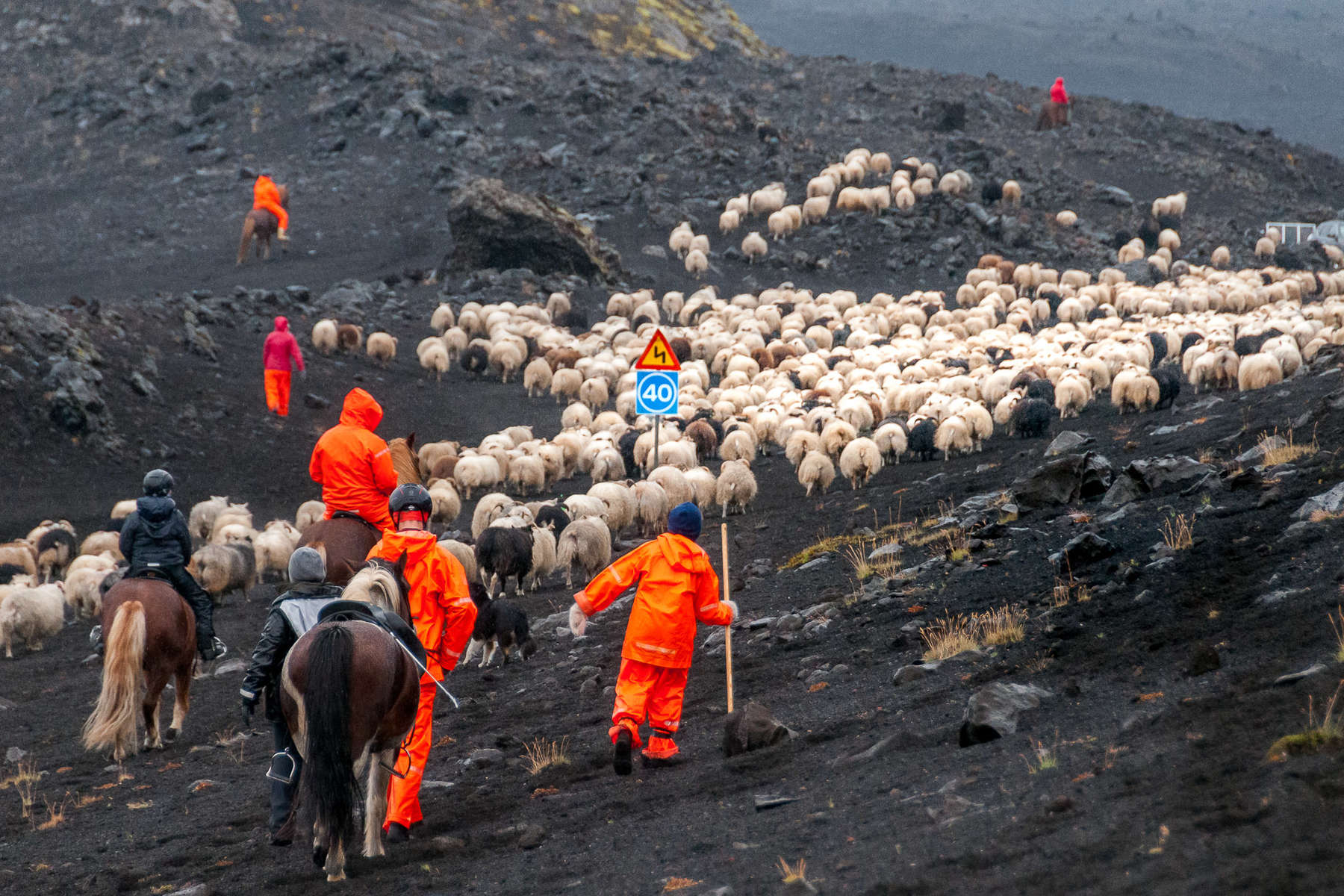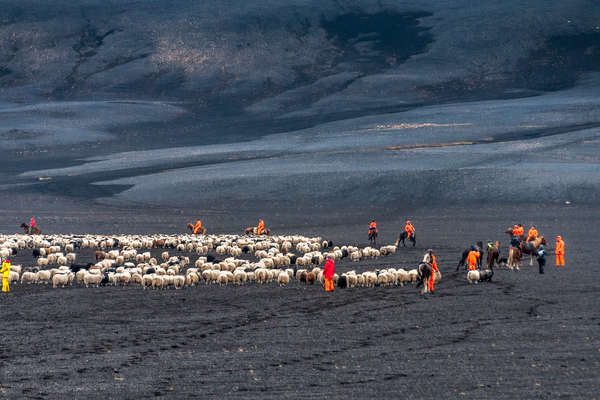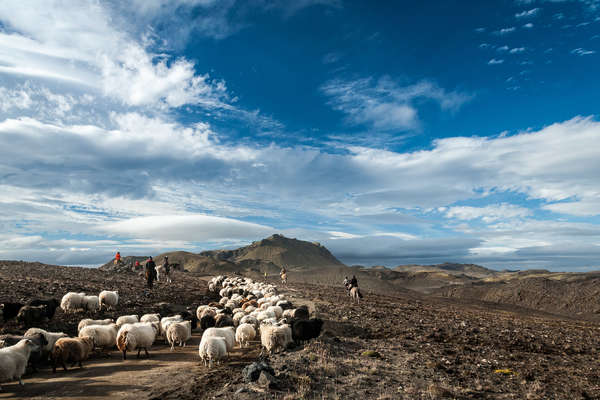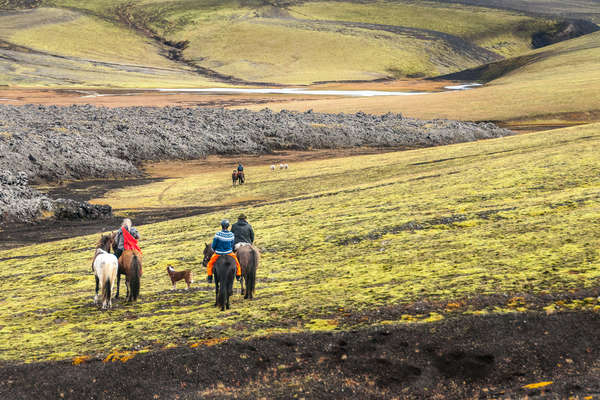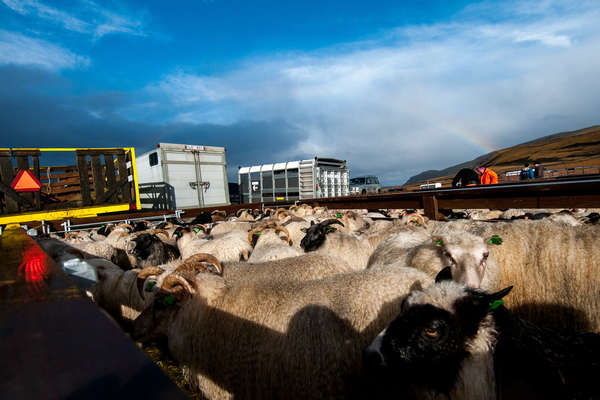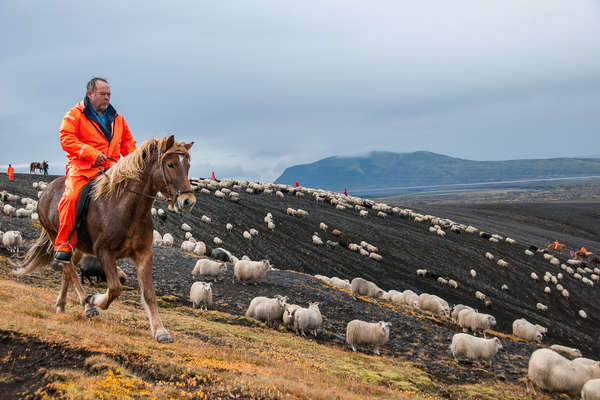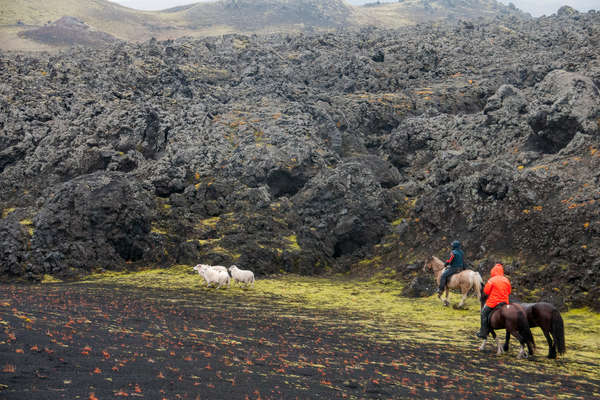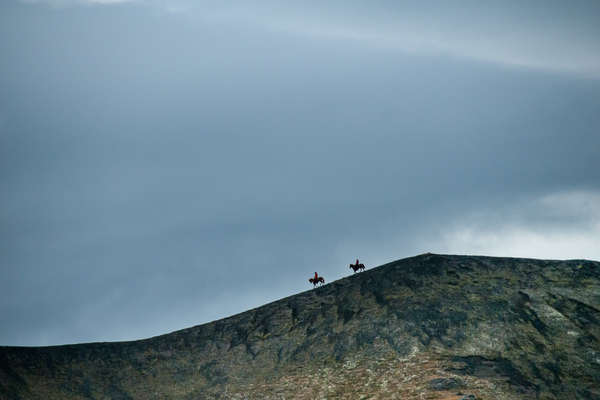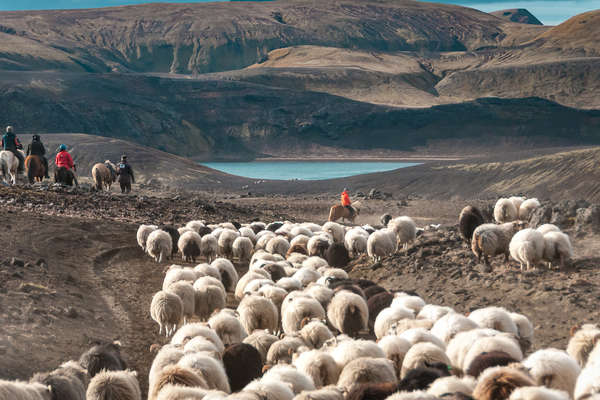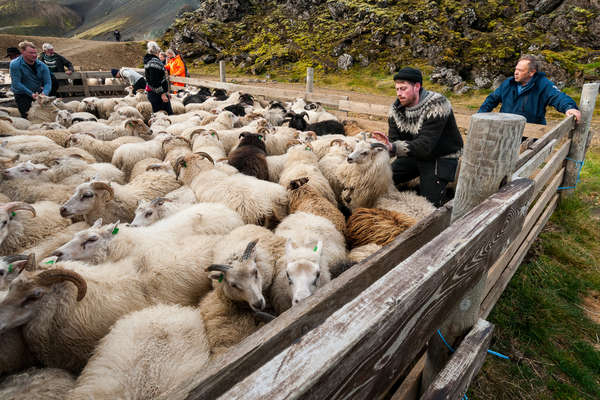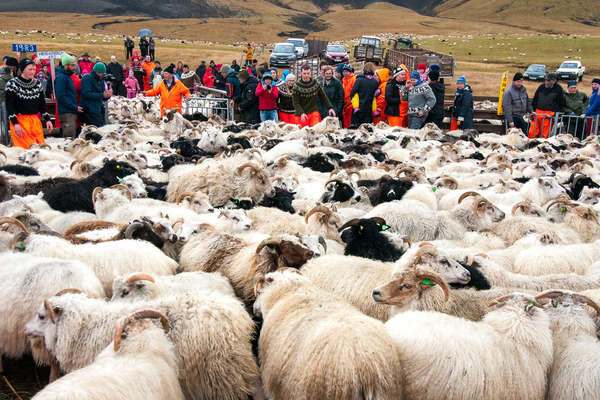Most nights will be spent at Landmannahellir Mountain Cabin.
The room is dormitory-style with bunk beds.
There are toilets and showers available (hot water is not guaranteed but it may be available for an extra fee).
You must bring your own sleeping bag.
Wifi is not available and cell signal is limited throughout the holiday.
Please understand that accommodation in Iceland is usually basic, with little privacy, small rooms and limited showers.
Lunches are simple picnics; dinners are generous and hearty.
You prepare your own picnic lunch at breakfast time.
Vegan and Gluten free diets can be accommodated at an extra cost.
Contrary to popular belief, the general climate in Iceland is temperate and cool with extreme cold temperatures only recorded in winter. In summer the average temperatures are 10-12c but can be as low as 5c and as high as 25c. You should be prepared for both sun and rain and dress in layers. The round-ups occur at the end of the season and so you are heading into autumn and the temperatures can be lower.
Tips are welcome but not expected. You should tip what you feel is appropriate and you are comfortable with.
There are some important packing considerations for a riding holiday in Iceland. The Icelandic horses have had no contact with other equine species and are not vaccinated. They do not have any resistance to diseases which are common elsewhere in the world and so it is important to take precautions to prevent the spread of infections.
- You should NOT take the following products into Iceland: saddles, bridles, halters, saddle pads, whips, brushes or any leather products which have been in contact with a horse.
- Your riding clothes must be thoroughly cleaned at least 5 days before departure (riding breeches, jumpers, coats, gloves) and should be washed in temperatures of at least 40c.
- Items which cannot be washed at 40c, such as riding hats or leather boots must be thoroughly disinfected at least five days before departure:
1. Wash in detergent.
2. Dry thoroughly
3. Spray with a 1% solution of Virkon detergent (10g per litre of water)
Please visit the
Icelandic veterinary authority website to learn more.
--
Please pack carefully and sensibly: the following guide is here to give you an idea of what to bring. This list must be adapted depending on the season and individual needs. If possible, please opt for a soft bag instead of hard shell suitcase.
Head
- A riding helmet is compulsory and we recommend that you take your own to ensure a correct fit.
- A flyhat to wear over your helmet may be a good idea in the summer months, when flies can be be an issue
- Sunhat for when not riding
- Sunglasses - with a cord attached so they don't fly off when riding
- Buff or bandana for protecting your neck and face from the elements
- Warm hat for cold evenings/days
Upper body
- Thermals in case of cold weather
- Long sleeved shirts provide protection from the sun or extra warmth
- Down jacket or gilet for cold evenings
- T-shirts
- Lightweight fleece or jumper
- Warm polar fleece or equivalent
- Waterproof jacket
Legs
- Lightweight, comfortable riding trousers or jodhpurs - we recommend riding in them at home before taking them on holiday to ensure they don't rub.
- Waterproof over trousers
- Casual clothes for the evenings (jeans or walking trousers)
- Thermal trousers
Hands and Feet
- Comfortable riding boots. We recommend short boots with half chaps but you may wish to take long chaps. We don't recommend taking your favourite long leather boots in case they get damaged. It is recommended your boots are waterproof as you may be crossing rivers and they can get wet.
- Sandals/flip-flops
- Several pairs of warm socks
- Gloves
Nightwear
- Sleeping bag and sleeping bag liner
- A small camping pillow
- Slippers (you will have to remove your shoes inside the accommodation)
- Eye mask
Other useful items
- A fly net against bugs
- Swimsuit - for hot tubs
- Camera and high capacity memory card. Spare battery
- Bumbag for carrying your camera and small items whilst riding
- Wet Wipes or equivalent (for when washing facilities aren't available)
- Ear plugs (for light sleepers)
Medical kit
- Sunscreen and lip balm - should be high factor
- Insect repellent
- Any medication you regularly take
- Blister plasters in case of any rubs
- Antiseptic cream, plasters, aspirin, anti-histamine, insect-bite salve etc...
- Spare prescription glasses/contact lenses
- Eye drops
- Imodium or similar anti-diarrhoea medication
- Re-hydration sachets
- Antiseptic wipes
- Handwash gel
Our Recommendations
- Backpacks cannot be worn whilst riding. We recommend a small bumbag or a coat with pockets so that you can carry small items with you during the day.
- We recommend travelling in your riding boots and carrying your hat and some riding clothes in your hand luggage - then if your luggage goes astray you are still able to ride!
- Carry a copy of your passport and insurance documentation with you.

